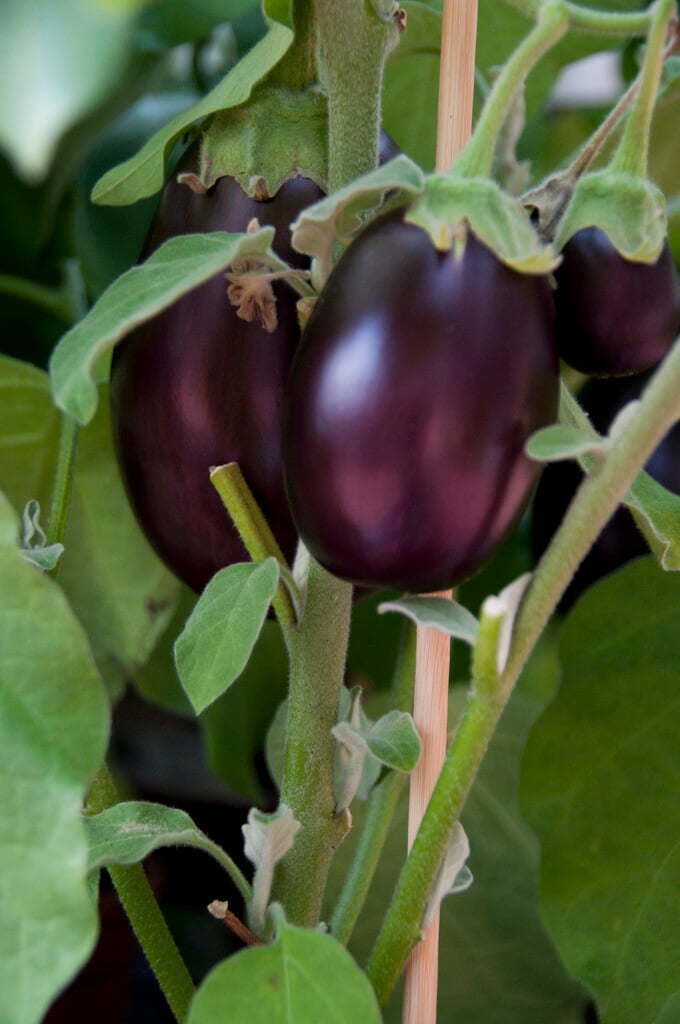Solanum melongena
aubergine
This is the wild species of aubergine from which our cultivated vegetable has been bred. In the wild it is perennial, but in the UK it is treated as an annual as it isn't hardy. It has green leaves and a slightly spiny stem. The flowers are purple and develop into small purple egg-shaped fruits. Many different varieties are available, varying in size, shape and colour
Other common names
badinjanbegoon
see morebringall
brinjal
brown John
brown jolly
egg plant
raging apple
mad apple
Size
Ultimate height
1–1.5 metresTime to ultimate height
1 yearUltimate spread
0.5–1 metresGrowing conditions
Moisture
Moist but well–drainedpH
Acid, Alkaline, NeutralColour & scent
| Stem | Flower | Foliage | Fruit | |
| Spring | Green | |||
|---|---|---|---|---|
| Summer | Purple | Green | Purple | |
| Autumn | Purple | Green | Purple | |
| Winter |
Position
- Full sun
Aspect
East–facing or North–facing or South–facing or West–facing
Exposure
Sheltered Hardiness
H1CBotanical details
- Family
- Solanaceae
- Native to GB / Ireland
- No
- Foliage
- Evergreen
- Habit
- Bushy
- Genus
Solanum can be annuals, perennials, evergreen or deciduous shrubs or twining climbers, with simple or pinnnately lobed leaves and star- or bowl-shaped, 5-lobed flowers with prominent stamens, followed by fleshy fruits
- Name status
Correct
How to grow
Cultivation
Grow in fertile moisture-retentive soil in good light. Can grow outside in summer. For more advice see aubergine cultivation
Propagation
Propagate by seed. See sowing vegetable seeds or sowing seeds indoors for further advice
Suggested planting locations and garden types
- Edible fruit
- Conservatory and greenhouse
Pruning
No pruning required
Pests
May be susceptible to aphids, glasshouse whitefly, glasshouse red spider mite and two-spotted mite
Diseases
May be susceptible to honey fungus (rarely)
Get involved
The RHS is the UK’s gardening charity, helping people and plants to grow - nurturing a healthier, happier world, one person and one plant at a time.
